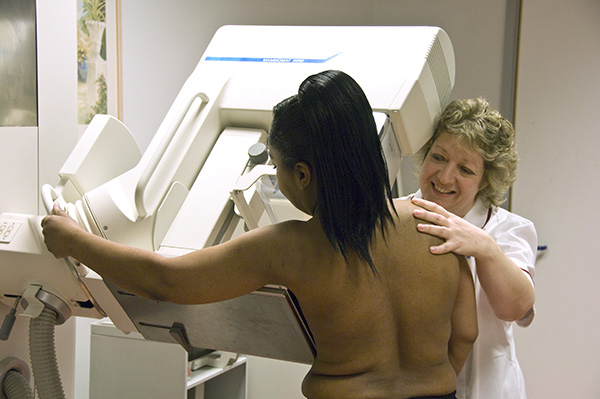In 1988, the UK implemented the first national breast screening programme following evidence published in the Forrest Report.

We routinely screen women between the ages of 50 and 70 and aim to reduce the number of deaths from breast cancer by finding disease at an early stage.
Naturally, standards for the programme have evolved over time as performance has improved, both in terms of screening sensitivity (avoiding false negative results) and specificity (avoiding false positives).
These standards and targets appear in many guidance documents for breast screening professionals.
We are now consolidating the standards into one document that is out for consultation. We will then be able to update this document immediately whenever targets are revised. At the same time, we are updating our professional guidance documents without reference to targets.
The consolidated standards will:
- encourage services to perform to high standards based on the best evidence available
- make sure women can access a high quality screening service throughout England
- give commissioners ways to assess the quality and performance of their screening services
- give local screening services mechanisms to compare themselves to national performance
- give women peace of mind that the programme is monitoring local services using evidence based targets
We asked a range of important stakeholders to help us revise the programme standards to make them fit for purpose. These included statisticians, clinicians and all other disciplines working in the service.
It is now your opportunity to comment. If you have any concerns, we would like your comments, so please take part in the consultation by reading the draft revised standards and completing the response form.
The public consultation period will last until 27 February.
PHE Screening blogs
PHE Screening BLOGs provide up to date news from all NHS screening programmes – replacing our previously published newsletters.
You can register to receive updates direct to your inbox, so there’s no need to keep checking for new blogs.
9 comments
Comment by katrehman posted on
Interesting point Phil. I really don't understand why there's such an outcry about women who don't attend smear testing when breast cancer is more common! For so long women have been coerced and pressured into smears and negative comments until recently removed by moderators. I have opted out of smears too and will stay opted out...
Comment by Cheryl Cruwys posted on
Breast Density Matters UK have submitted responses by email today, 26/2/17.
Comment by Phil Bullock posted on
Its very good to see this open consultation process in breast screening. Would cervical benefit from a similar approach I wonder?
Comment by Ruth Stubbs posted on
Thank you for the comment. The cervical screening programme standards are currently being reviewed and will follow the same open consultation process.
Comment by Julie Harrison posted on
The best way of screening is via a Thermogram. The mammogram I had didn't even pick up the cancer I had. Mammograms cause cancer too and make a cancer that is present like to leak cancerous cells into the breast tissue spreading it further
Comment by Jacquie Jenkins posted on
Screening by mammography (using x-rays) is the best proven way to detect cancers in women aged 50 to 70. There is a very small risk of radiation exposure due to x-rays causing cancer but this is greatly outweighed by the reduction in breast cancer mortality.
Comment by katrehman posted on
As a woman who has opted out of the breast screening programme I feel until more can be done to identify dangerous growths to ones that would never have harmed ...I will stay opted out!
Comment by D.Haupt posted on
Agree, wish there was as much investment in the natural history of untreated DCIS! might free many women from this gruelling ordeal.
Comment by Jacquie Jenkins posted on
There are two current trials which are trying to understand the natural history of DCIS (Forget me not and Loris) from women in the breast screening programme. The outcomes should help inform screening policy in the future.